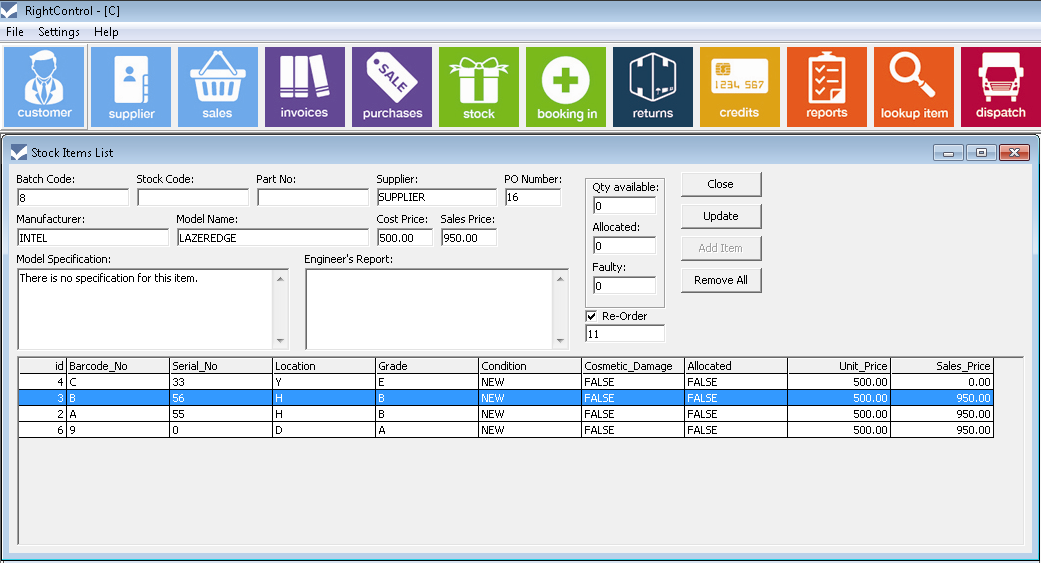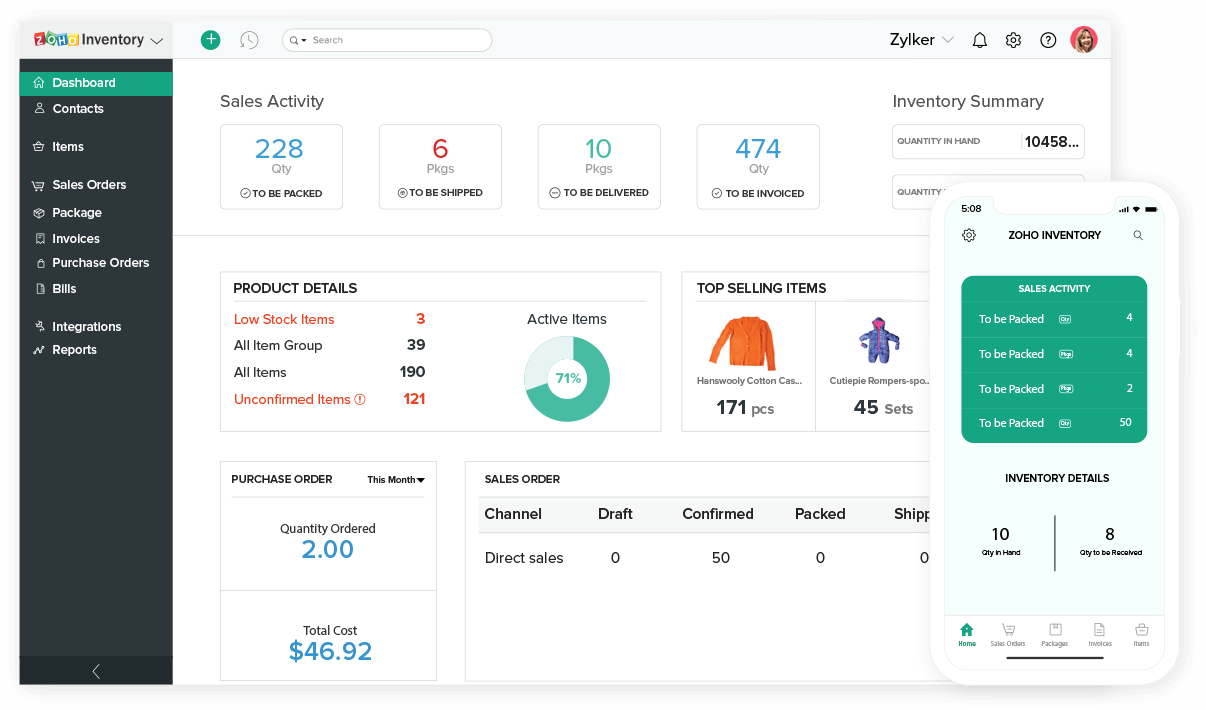Accounting and inventory management software for small businesses is essential for streamlining operations, improving efficiency, and gaining valuable insights into your business. In today’s competitive market, having the right software can make all the difference in your success.
This comprehensive guide will provide you with an overview of accounting and inventory management software, its key features, and how to choose the right solution for your small business. We’ll also share best practices for implementing and using the software effectively.
Overview of Accounting and Inventory Management Software: Accounting And Inventory Management Software For Small Business
Accounting and inventory management software is a comprehensive tool designed to streamline and automate financial and inventory-related tasks for small businesses. It seamlessly integrates accounting functions, such as invoicing, expense tracking, and financial reporting, with inventory management capabilities, including stock tracking, purchase order management, and inventory valuation.
By leveraging accounting and inventory management software, small businesses can gain significant benefits, including enhanced accuracy and efficiency in financial and inventory management, improved cash flow visibility, reduced operating costs, and better decision-making based on real-time data.
Benefits of Using Accounting and Inventory Management Software for Small Businesses
The advantages of implementing accounting and inventory management software for small businesses are numerous:
- Accurate and Efficient Financial Management: The software automates accounting tasks, eliminating manual errors and ensuring accuracy in financial record-keeping, invoicing, and reporting.
- Enhanced Inventory Control: It provides real-time visibility into inventory levels, enabling businesses to optimize stock levels, prevent overstocking or shortages, and improve inventory turnover.
- Improved Cash Flow Management: By integrating accounting and inventory management, businesses can track expenses, invoices, and inventory costs in one place, gaining a comprehensive view of their cash flow and making informed financial decisions.
- Reduced Operating Costs: The automation of tasks and streamlined processes offered by the software can significantly reduce labor costs associated with manual accounting and inventory management.
- Data-Driven Decision-Making: The software provides real-time data and analytics on financial performance and inventory trends, empowering businesses to make informed decisions based on accurate information.
Key Features of Accounting and Inventory Management Software

Accounting and inventory management software is designed to help small businesses manage their financial and inventory operations efficiently. These software solutions offer a range of key features that can streamline accounting processes, improve inventory control, and enhance overall business operations.
Financial Reporting
Accounting and inventory management software provides robust financial reporting capabilities that enable businesses to track and analyze their financial performance. These features include:
- General Ledger: The general ledger is the foundation of the accounting system, recording all financial transactions and providing a comprehensive view of a company’s financial position.
- Balance Sheet: The balance sheet provides a snapshot of a company’s financial health at a specific point in time, showing its assets, liabilities, and equity.
- Income Statement: The income statement summarizes a company’s revenues, expenses, and profits over a period of time, such as a quarter or a year.
- Cash Flow Statement: The cash flow statement shows the movement of cash into and out of a company, providing insights into its liquidity and solvency.
Choosing the Right Accounting and Inventory Management Software for Your Small Business
Choosing the right accounting and inventory management software for your small business is crucial for streamlining your financial operations and optimizing your inventory management. Here are some tips to help you make an informed decision:
Consider Your Business Needs
Start by assessing your specific business needs. Consider the size and complexity of your operations, the number of transactions you process, and the level of detail you require in your financial and inventory data. Determine which features are essential for your business, such as:
- Invoicing and billing
- Expense tracking
- Inventory management
- Financial reporting
- Payroll processing
Research Different Software Options
Once you have a clear understanding of your needs, research different software options that meet those requirements. Consider both cloud-based and on-premise solutions, and explore the features and pricing of each. Look for software that is user-friendly, integrates with other business applications, and provides reliable customer support.
Read Reviews and Compare Features
Before making a decision, read reviews from other small businesses that have used the software. Pay attention to their feedback on features, ease of use, and customer support. Additionally, compare the features of different software options side-by-side to determine which one offers the best value for your business.
Implementing Accounting and Inventory Management Software in Your Small Business

Implementing accounting and inventory management software in your small business is a crucial step towards streamlining your operations and gaining control over your finances and inventory. Here are the key steps involved in this process:
Data Migration
Data migration involves transferring your existing accounting and inventory data into the new software. This can be a complex process, so it’s important to plan carefully and ensure that all of your data is accurately migrated. You may need to work with a professional to ensure a smooth data migration.
Training Staff
Once your data is migrated, you’ll need to train your staff on how to use the new software. This is essential to ensure that everyone is using the software correctly and efficiently. Provide comprehensive training and support to your staff, covering all aspects of the software’s functionality.
Troubleshooting
As with any software implementation, you may encounter some issues along the way. It’s important to have a plan in place for troubleshooting and resolving any problems that arise. Consult the software’s documentation, online resources, or contact the vendor’s support team for assistance in resolving any issues.
Best Practices for Using Accounting and Inventory Management Software

Utilizing accounting and inventory management software effectively is crucial for streamlining business operations and ensuring data accuracy. To maximize the benefits of these tools, consider the following best practices:
Regularly Updating Your Software
Software updates provide essential security patches, bug fixes, and new features that enhance the software’s functionality and efficiency. Regularly updating the software ensures that you have the latest version with the most up-to-date capabilities.
Backing Up Your Data
Regularly backing up your data is a critical safeguard against data loss due to hardware failure, software errors, or malicious attacks. Consider implementing automated backup processes to ensure data is securely stored in multiple locations.
Using the Software to Its Full Potential
Explore the full range of features offered by your accounting and inventory management software. Utilize advanced functionalities such as inventory tracking, reporting, and automation to streamline processes, improve accuracy, and gain valuable insights into your business operations.
Last Word
By investing in the right accounting and inventory management software, you can empower your small business to reach new heights of success. With the ability to track your finances, manage your inventory, and gain valuable insights, you’ll be well-equipped to make informed decisions and drive growth.
FAQ Explained
What are the benefits of using accounting and inventory management software for small businesses?
Accounting and inventory management software can help small businesses save time and money, improve accuracy, gain valuable insights, and make better decisions.
How do I choose the right accounting and inventory management software for my small business?
Consider your business needs, research different software options, and read reviews and compare features to find the best fit for your company.
What are some best practices for using accounting and inventory management software effectively?
Regularly update your software, back up your data, and use the software to its full potential to maximize its benefits.